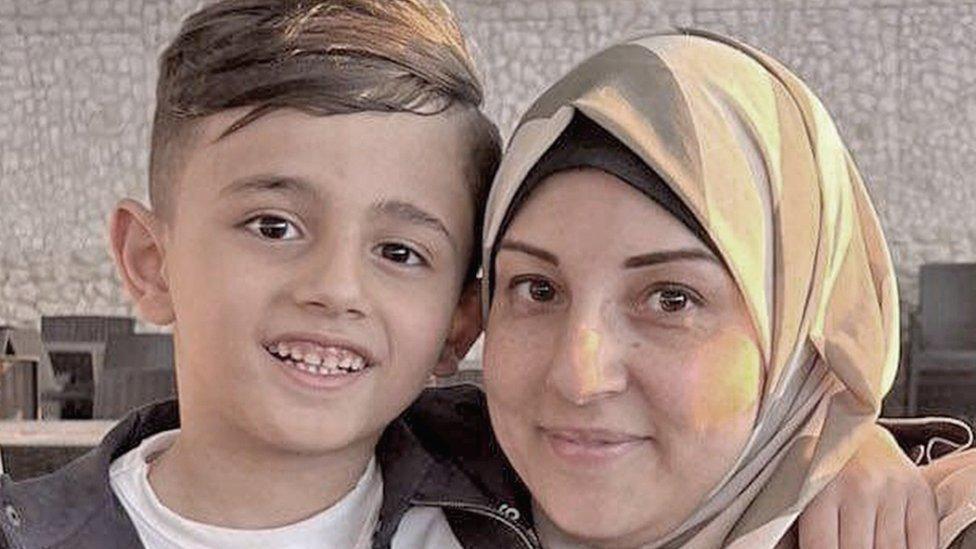Gaza casualties: 'Most of the children in my family photo are dead'
- Published
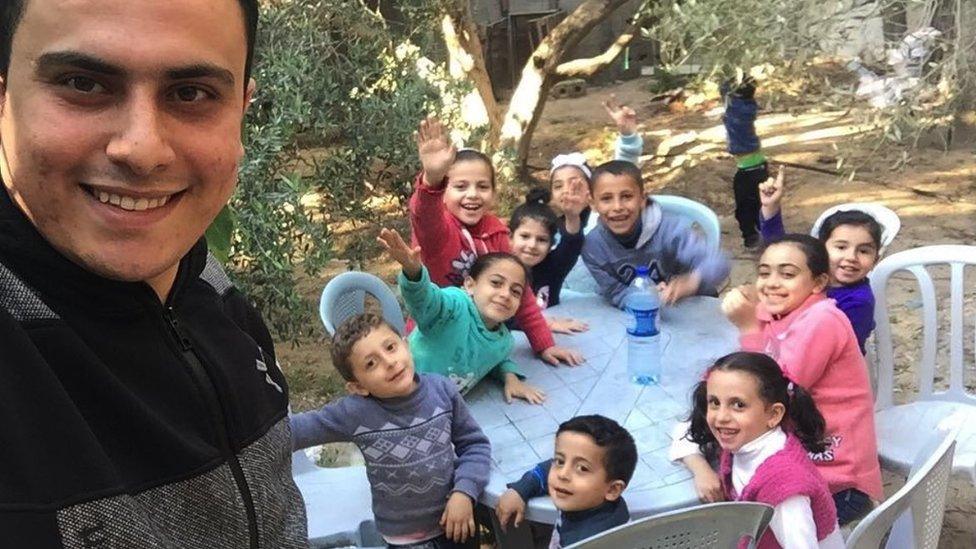
Ahmed al-Naouq took this family selfie four years ago - most of the children in the photo are now dead
Whole families have been wiped out in Israel's air strikes on the densely populated streets of Gaza, where many Palestinians live in multi-generational homes. Three Palestinians in the UK told the BBC that more than 20 of their relatives had been killed in one blow - and many were still stuck under the rubble.
It was just another lazy, sunny Friday afternoon four years ago when Ahmed al-Naouq snapped this selfie with his family. But he remembers it well, especially now.
Under the shade of olive trees by his father's house, his sisters and brothers got together with their children to eat, play and chat.
Taking a break from running around, the children were ready to eat when Ahmed captured them together. Now, most of them are dead, he says.
They were killed in an air strike which struck the family home on 22 October. In total, 21 people were killed including his father, three sisters, two brothers and 14 of their children.
More than 11,000 Palestinians have been killed in the Israeli bombardment, according to Gaza's Hamas-run health ministry. The air strikes began after the 7 October attack by Hamas, in which Israel says about 1,200 people were killed and more than 200 taken hostage.
Israel says its strategy in Gaza has been to root out Hamas which it accuses of operating in the heart of civilian communities - and that it takes steps to mitigate civilian casualties.
In Ahmed's photo, only seven of the children who were killed appear. Some weren't there that day, some weren't even born.
Like many Palestinians, Ahmed's brothers built their family homes above their father's - a tradition which means generations are being wiped out in one fell swoop.
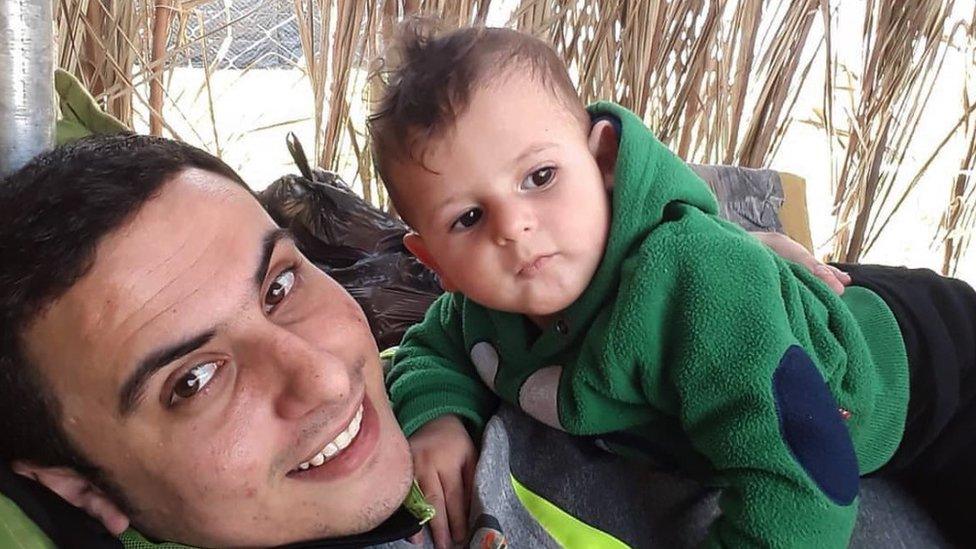
Ahmed, who moved to London to work with an NGO, last saw family members, such as his nephew Abdullah, in 2019
His sister Aya had gone there to take shelter with her children after her own apartment was damaged by an air strike. His other sisters, Walaa and Alaa, were there too with their children. The house was in the centre of Gaza in the town of Deir al-Balah, an area that had never been targeted before. They thought it was safe.
"I thought it's a scary time for them but they will be OK," Ahmed says, stunned now by his naivety.
Ahmed moved to London four years ago to work for an NGO and hasn't been home since. The last time he saw the children together was by video call. He had been given a bonus and, as part of a family tradition, he promised his nieces and nephews a treat.
"They all said that they want to go to the beach and rent a chalet and have food and dance together and enjoy," he says. So, he hired one and bought them dinner and snacks.
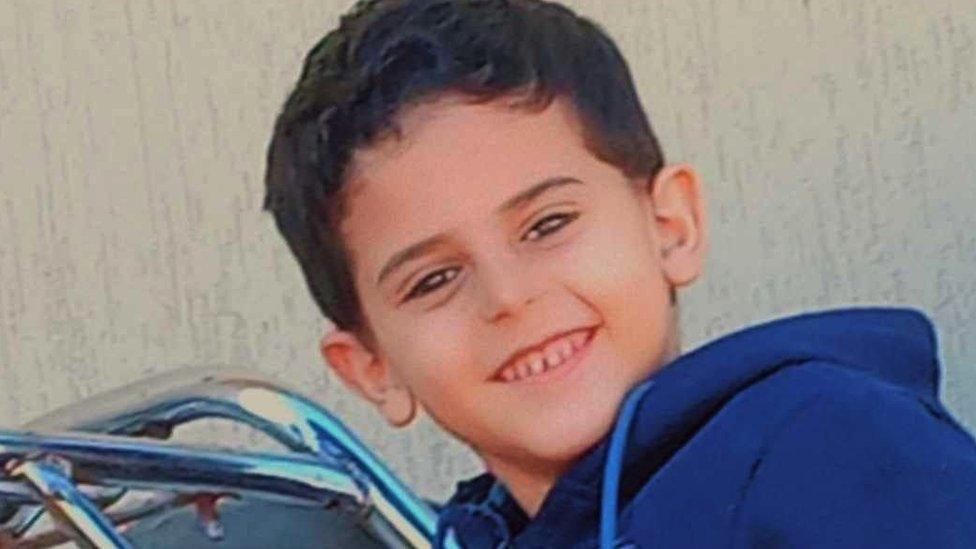
Abdullah was six when he was killed
The children called him from the beach that day, fighting over the phone to talk.
So many of them are dead now that Ahmed stumbles as he remembers the names and ages of each one.
His 13-year-old nephew Eslam was the eldest and the one he knew best. Ahmed was a teenager and living at home when Eslam was born. His mum looked after the baby while his sister was at work, so Ahmed often helped to feed and change him.
As Eslam grew older, he said wanted to be like his uncle. He was the top of his class, Ahmed says and working hard at English so that he could also come to the UK.
Eslam was killed alongside his little sisters - Dima who was 10, Tala who was nine, Nour who was five and Nasma who was two, as well as his cousins Raghad (aged 13), Bakr (aged 11), girls Eslam and Sarah who were both nine, Mohamed and Basema who were eight and Abdullah and Tamim who were six.
After the attack, Ahmed posted pictures of each of the children online to let the world know what had happened to them. Among them was three-year-old Omar. The little boy had been in bed with his mum Shimaa and dad Muhammed - Ahmed's brother - when the bomb fell.
Then Ahmed got a call from one of his surviving sisters: Omar was alive. Ahmed's brother Muhammed had been killed but Shimaa and her little boy miraculously survived.
"That was the happiest moment in my life, ever," Ahmed says.
The only other person pulled from the rubble alive was 11-year-old Malak. She was badly injured, with burns over half of her body.
When I met Ahmed, he showed me a picture of Malak in her hospital bed - her body was entirely covered in bandages. At first, I mistook her for a boy because her hair was short. It must have burned in the fire, Ahmed said.
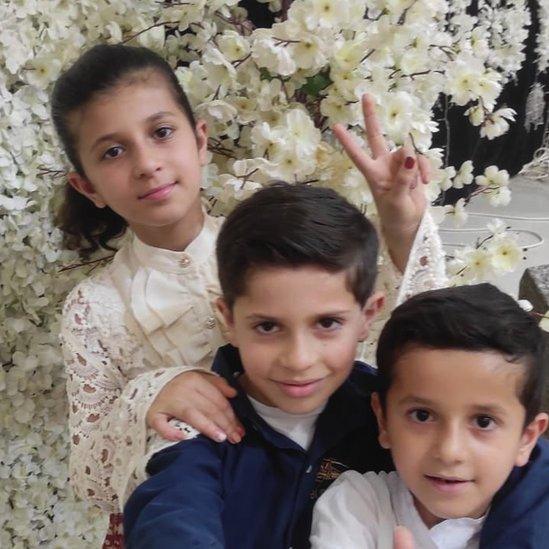
Malak, 11 was pulled from the rubble alive but badly injured. Her brothers Mohamed, 9, and Tamim, 6, were killed in the blast
Malak's father wasn't in the house when it was hit and he is alive. But his wife and two other children were killed. When Ahmed messaged him to ask how he was doing, he replied: "A body, no soul."
A week after the bomb, communications from Gaza were almost entirely cut off as Israel escalated its attack, and Ahmed couldn't contact anyone. When the signal was reconnected two days later, he learned that Malak had died.
Medical supplies were dwindling to nothing and the 11-year-old had to be taken off the ICU unit when a more urgent case came in. She was in a lot of pain.
"I died a hundred times every day," her father told Ahmed, as he watched the eldest and last of his three children fade away.
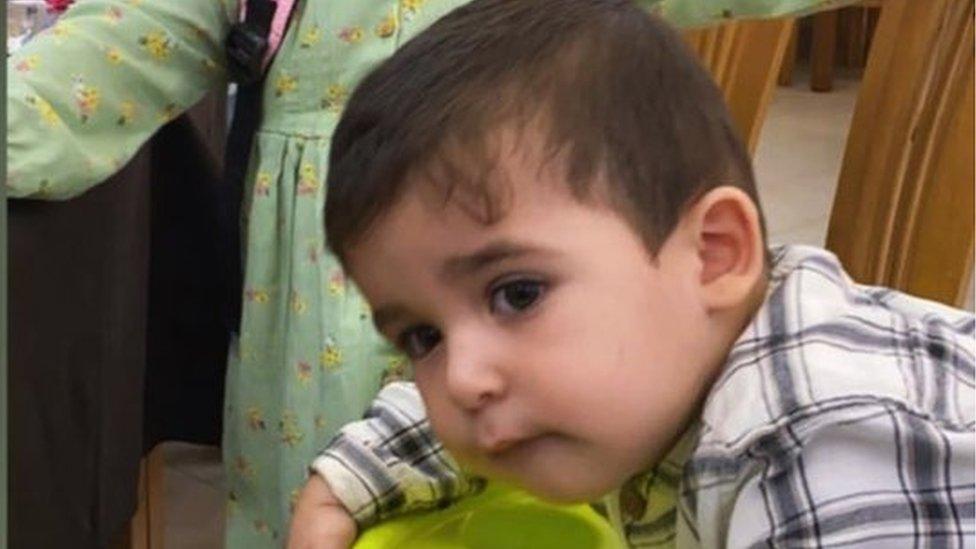
Youssef was among 20 members of one family killed in one blow. He was aged four
Just before the communication blackout, Ahmed also found out that his uncle's house had been hit. He's still not sure who was killed there. On Tuesday, he also learned that the home of his close friends Maisara and Laura had been hit. Again several generations were killed - Laura survived but Maisara is still missing underneath the rubble.
In all, we spoke to three people in the UK who had each lost more than 20 family members in Gaza.
Darwish al-Manaama told the BBC that 44 of his family died. Among them was his niece Salma and her husband, their four adult children and their grandchild who was barely one.
Darwish found out his family had died from a list sent to him on WhatsApp. After sharing some details, he was too overwhelmed to talk.

More on Israel-Gaza war
Follow live: Latest updates
From Gaza: ‘So crowded we can’t even sleep on our backs’: Gaza shelters at breaking point
From Israel: How much closer is Israel to its goal in Gaza?
Explained: The faces of hostages taken from Israel
History behind the story: The Israel-Palestinian conflict

Yara Sharif, an architect and academic in London, sent me photos of her aunt's family home which was destroyed in an Israeli strike a week into the war.
"It was a very beautiful house," Yara says, "A beautiful mansion with a big courtyard in the middle." Like Ahmed's family, the sons built apartments for their own families on top of their parents.
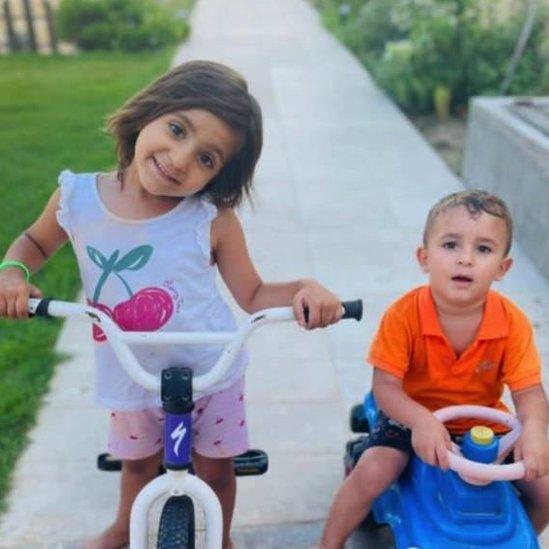
Fatima, 5, and Anas, 3, in the garden of their home in northern Gaza before they were killed
Yara found out that 20 of her relatives had been killed on Facebook - her aunt and uncle, her two cousins and their 10 children, as well as six members of the extended family.
Some of their bodies were pulled from the rubble and they appear as numbers on the list of dead released by the Ministry of Health.
Yara sent us a screenshot of the list with a rough red mark by each name and, on the right-hand side, their ages. Sama was 16, Omar and Fahmy were 14-year-old twins, Abdulrahman was 13, Fatima 10, Obaida seven, cousins Aleman and Fatima were both five, Youssef was four and Sarah and Anas were three.
Yara has two cousins left. They asked not to be named, worried by an unsubstantiated rumour that those who speak to the media are being targeted.
The sisters are in different parts of Gaza and can't reach each other to hold a funeral or grieve. And anyway, as Yara's cousin messaged her: "Muhammed's body and Mama's and the two children are still under the rubble."
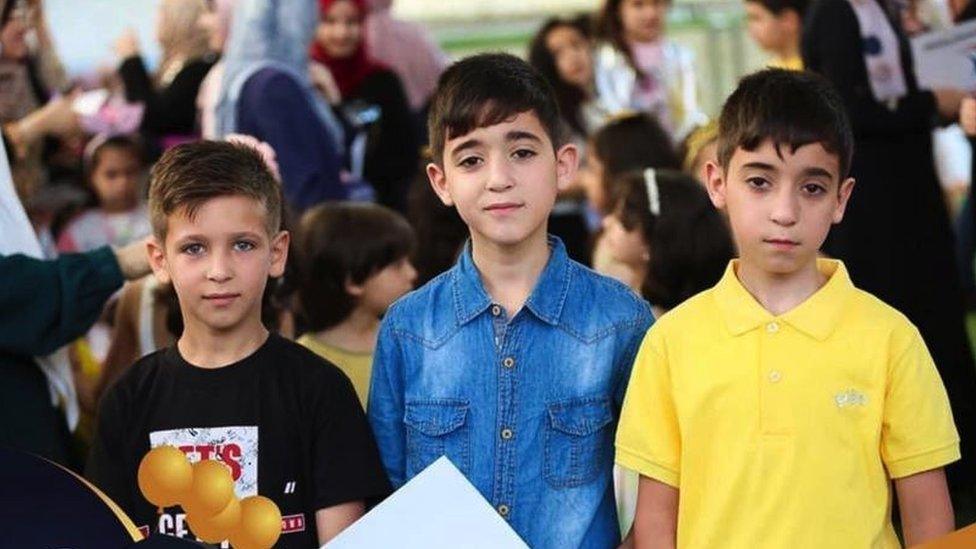
Abdulrahman died with his cousins, twins Omar and Fahmy. Fahmy's body has yet to be recovered from the rubble
There is not enough fuel to run excavator machines in Gaza and any that are working are needed to rescue those who are alive.
On Friday, as I sat with Ahmed al-Naouq watching the news, the list of the dead scrolled down the screen. I asked him if his family were on it. "Only 12 of them," he said. The other nine hadn't yet been recovered.
After the bombing, his oldest sister, who was at her own home when it happened, went to visit the ruins. But she told Ahmed she couldn't stay long because she couldn't stand the smell of rotting flesh.
Ahmed struggles to keep in touch with his surviving sisters. Often phones aren't working, and he loses touch with them.
He struggles to find the words in English to describe what he has been feeling since the bombing, saying it feels as if his heart is no longer in his chest. Crying is pointless, he says, because it changes nothing.
"I feel like I can't stand still. I can't sit still. I can't sleep at night," he says. "There's nothing you can do to stop this feeling."
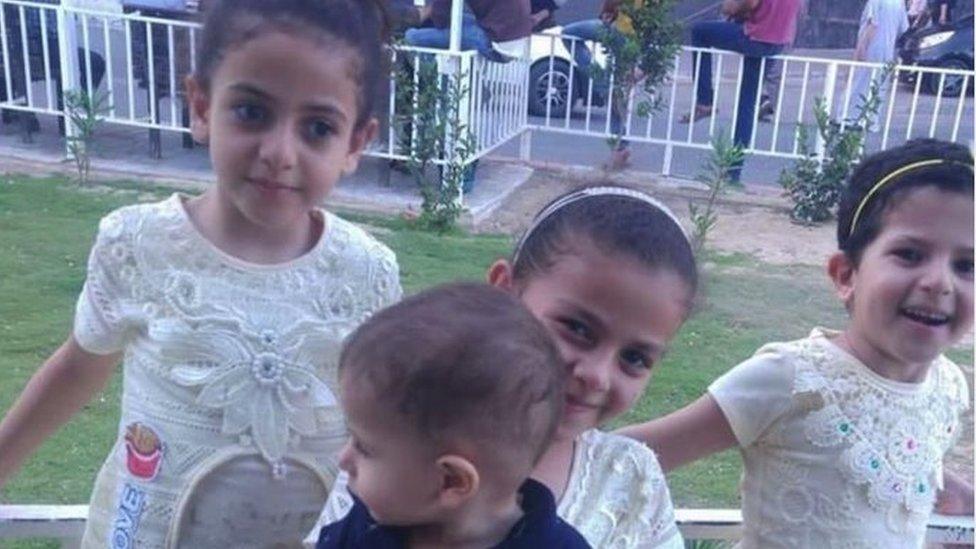
Ahmed says he can't sleep since the bombs killed his family, including Sara, 9, Raghad, 13 and Abdullah, 6, and Eslam, 8
Ahmed says his father was the kindest man he had ever known. He worked hard driving a taxi and in construction to build a home for his children and educate them well. He listened obsessively to the news and believed the only solution to this conflict was a one-state solution, where Jews and Palestinians would live alongside each other in peace.
But thinking of his only surviving nephew, Ahmed wonders: after this war has taken so many people he loves, what will Omar believe?
Additional reporting by Husna Wahid
Related topics
- Published6 November 2023
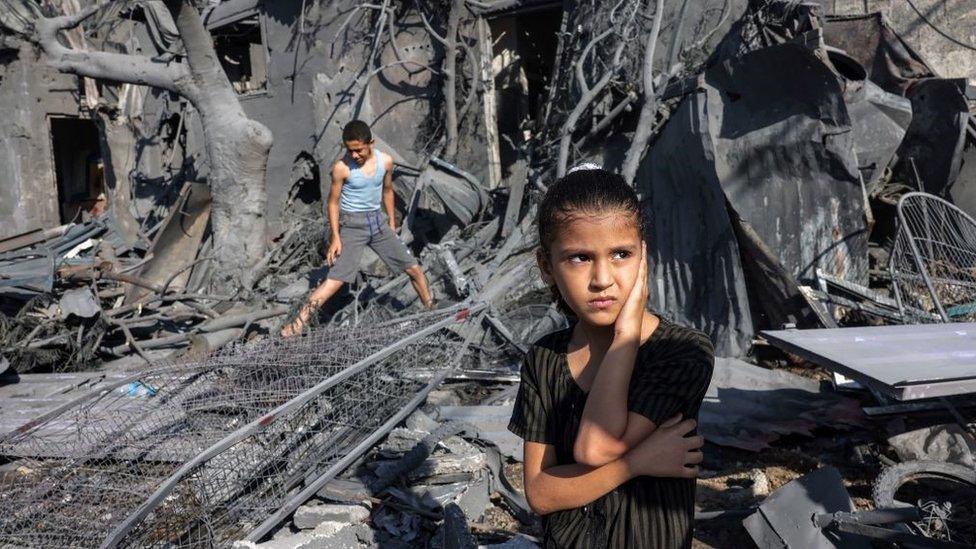
- Published6 November 2023
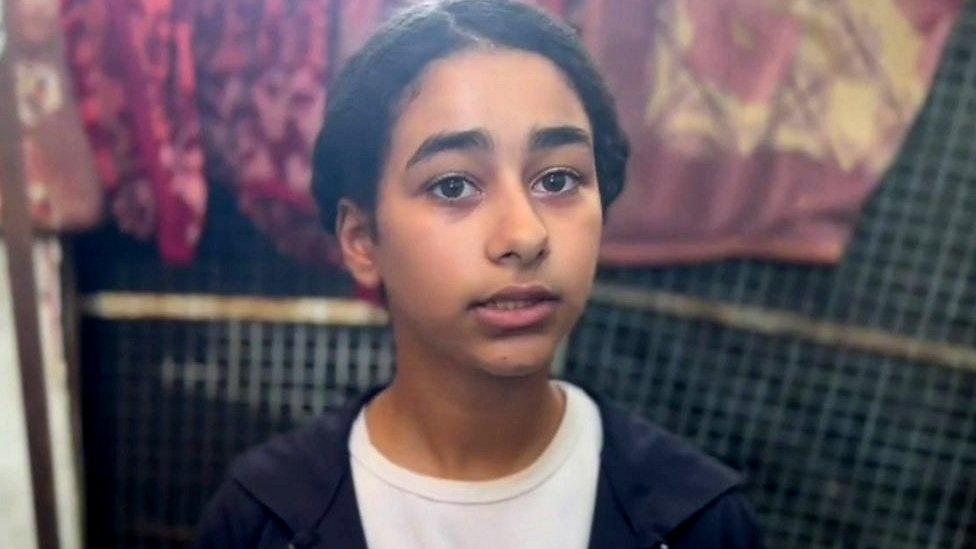
- Published3 November 2023
